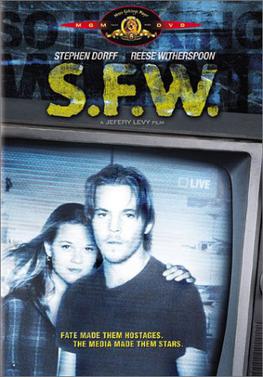 |
| Right color, wrong song! |
But then, not all thievery is created equal. There's a huge difference between breaking into someone's house and hauling off everything of value inside of it, and illegally downloading the latest Katy Perry single.
Two wrongs don't make a right, but it's not like Katy Perry isn't going to be just fine. And sometimes I wonder if the music industry isn't asking for it. Why do retailers sometimes make it so frustratingly difficult to legally acquire music that falls outside of the mainstream (Don't get me started on what I used to go through to get my Robyn imports back before "With Every Heartbeat" made her hot outside of her native Sweden), especially if, like me, you don't live in the English-speaking world? I recently discovered just how tough it can be when I tried to buy "(It Ain't Easy Being) Green" -- not the Kermit the Frog classic (note the clever use of parentheses), but a song from Shannon McNally's 2002 debut album Jukebox Sparrows.
After searching for it in vain on YouTube, I tracked it down on Grooveshark, a website where you can stream a variety of songs by various artists. The only problem is that to enjoy the song, I had to listen to it on my computer. I couldn't take it on the run during my thrice-weekly jogging treks around Lumpini Park. And making matters worse, after months of being at the mercy of Grooveshark, my song recently mysteriously disappeared from the website.
If I wanted to listen to it, I'd have to buy it. First, I tried to download it on iTunes. Unfortunately, although I'm living in Bangkok, I'm still connected to the iTunes store in Argentina, and was able to make purchases there only. In order to access the U.S. store to buy music there, I would have to create a new iTunes account and change my location -- annoying but doable. Or so I thought: In order to create an account in any country, you must have a credit card with a billing address in that country. Since both of my credit cards are billed to my Buenos Aires address, I was stuck in Argentina, though living in Bangkok and craving a U.S. connection.
It's bad enough that iTunes restricts where you can play the music that you purchase there. Do they have to make it so complicated to buy it in the first place?
Next up, Amazon. Strike two! The Amazon store wasn't available in Thailand. Neither were several of the other digital-music retailers that I tried. I was beginning to think that the only way I would ever get to go running with my song blasting in my ears would be if I brought my laptop with me.
Then I remembered 7digital, the UK-based digital-media retailer whose website I used to log on to whenever I wanted to buy new British music that wasn't yet available in the U.S. back when I lived there. Finally, my luck was changing. Not only was Shannon McNally's debut album available for download in 7digital's U.S. store, but there were no international restrictions, and I didn't need a U.S. billing address to use my credit card (or PayPal) to buy my song for $1.49. That's 20 cents more than it was on iTunes and 50 cents more than on Amazon, but you get what you pay more for, right?
I hate to admit it, but had 7 Digital not come through for me, I may have been forced to resort to stealing. It's not right, but it's okay --- especially when the music industry puts me at such a disadvantage when I want to legally purchase music that falls outside of the parameters of Top 40. It's bad enough that Bangkok only seems to get the Hollywood blockbusters that I'm not interested in seeing. Must I be forced to buy only bad music, too?
We've come a long way from the days when the only way to acquire import music was to shell out at least $30 for it at some specialty record store on Bleecker Street in New York City. One would think that by eliminating the need for shipping and handling, digital music would have made international distribution easier, but I suspect that the music industry remains bogged down in it's own legal red tape when the top priority should be getting music to whomever wants to hear it, regardless of where they live.
Now that I got what I wanted, I'm once again heeding what my mother used to say: It's always good to share. To that end, I created a YouTube video for "(It Ain't Easy Being) Green" by Shannon McNally so that everyone can hear what all my fuss was about. Is it worth all of the effort it took for me to get it?
















